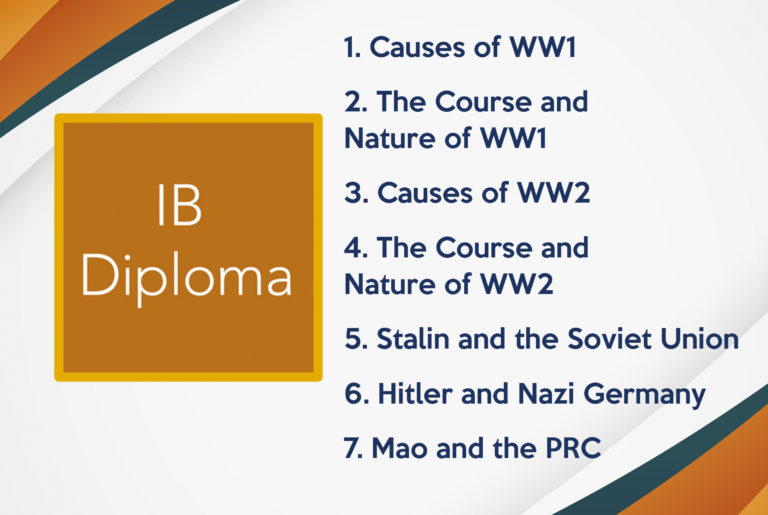The Communists and the Fight Against the Japanese: more nationalist than the Nationalists
Mao immediately set about asserting his control at Yan’an. It was accepted that the Party had to look for support from the Right, from rich peasants, the petty bourgeoisie and, too, the national bourgeoisie. Attention had to be paid to the circumstance China was in. ‘Empty, abstract communist principles’ were not going to win the support of the people. And this included prioritising the war against the Japanese over the Revolution.
The first move Mao made was to strike a deal with the local warlord, Zhang Xueliang, known as the Young Marshall (distinguishing him from his deceased father, the Old Marshall). Zhang was ruthless, and could be devious, but he was a patriot. Zhang’s father been assassinated by Japanese agents, and he and his men had been expelled from Manchuria, from their homes, by the Japanese. Zhang was not prepared to oppose Chiang Kai-shek but he was impressed by the manner in which the Communists were taking the fight to the Japanese. So, he agreed a truce with the Communists in order that they might both fight their common enemy: the Japanese. He also agreed that, ideally, a national government should be formed as well as a unified national army to fight the Japanese. Without this agreement the Communists might well not have survived for very long at Yan’an.
Mao also set out to woo the Nationalists into joining an anti-Japanese alliance. Chiang Kai-shek’s support wasn’t actually the aim, rather they hoped to undermine his policy of appeasement by appealing to the Guomindang’s anti-Japanese faction. Mao also had in mind that, if nothing else, such appeals for a new united front would appeal to Soviet sensitivities who had woken to the threat the Japanese presented when they invaded Manchuria. Mao made the fight against the Japanese the central focus of the purpose of Yan’an, indeed this allowed the Communists to develop the myth that the reason for leaving Jiangxi was to fight the Japanese.
The Communists proposed an immediate end to the civil war, the establishment of a government of national defence, the restoration of political freedoms and internal reforms, a joint army to fight the Japanese, and free passage for the Red Army to fight them (with a few necessary additions, more or less the agreements reached with Zhang). It was a win-win situation for the Communists. If the proposals were accepted it would drive a wedge between the two wings of the Guomindang Party. If they were not accepted, the Communists would be seen as the defenders of China’s national interests. Mao was very aware now of the increasing hostility towards the Nationalists among ordinary Chinese in the face of Japanese imperialism and, too, in the face of Chiang’s appeasement of the hated foreigner and his policy of ‘trading space to buy time’. Chiang’s policy, in fact, made some sense – China was so vast that the more Japan tried to occupy, the more it would be stretched and so the weaker it would be – but it was hardly inspiring, and resulted in splits amongst the Nationalists and even mutinies in their armies.
However, the negotiations, though they seemed promising, ultimately foundered because, with the Communists so weakened, Chiang saw the opportunity to rid himself of the Communist irritation once and for all. Chiang was only eventually dragged unwillingly into an anti-Japanese front with the Communists because of Mao’s new ally, Zhang Xueiliang, the Young Marshall, and the remarkable events that unfolded at his base in Xian.
Following his secret deal with the Communists, Zhang had called for an end to the civil war in order to engage the Japanese in a nationalist war. In December 1936, Chiang flew to Xian to tell Zhang, in no uncertain terms that he either takes part in the encirclement campaign of the communists or he will be removed from his command and sent south. But whilst Chiang was in Xian, the Japanese War Minister declaring that unless China was more submissive, fresh conflict would be inevitable. This led to anti-Japanese protests by students in Xian with shots fired on the demonstrators. Meanwhile, Zhang received a telegram from Mao telling him that negotiations for a united anti-Japanese front had broken down due to Chiang’s ‘excessive demands.’
Consequently, the Young Marshall decided he had to show whose side he was on. He ordered his men to arrest Chiang and his General Staff, to disarm the police and the Guomindang’s paramilitary force, to take over the Governor’s office, and to seize control of the airport. Chiang fled during the assault on his headquarters but was captured hiding in a cave, still wearing his nightshirt. Mao, Zhu De and Zhou Enlai all wanted Chiang to be put on trial, before ‘the judgement of the people’ so that his crimes might be publically exposed. The Party’s stance was conveyed to Zhang by way of a series of telegrams, as was their continued commitment to make their base in Yan’an the main base for an anti-Japanese campaign.
But Zhang wanted to offer Chiang a way out. In a ‘Telegram to the Nation’ sent to the Nationalist government, he said that he felt Chiang had been misguided and that he could continue as the national leader if he would bring about a government of all patriotic forces, ending the civil war and restoring political freedoms in the process; and focusing instead on ‘national salvation’, i.e. war against the Japanese. It was all the demands that the Communists had made in their negotiations for a new united front.
The Nationalist government in Nanjing, in a fierce debate, agreed to try for a peaceful conclusion to the crisis, but if it could not be achieved, military intervention against Zhang would ensue. The Soviet Union, for their part, in looking out for their own interests, muddied the waters further when it urged for a peaceful resolution thereby weakening Zhang’s negotiating position. The outcome was that Chiang was released was and Zhang flew back with him to Nanjing. The Young Marshall, however, payed a heavy price. He was court marshalled, sentenced to ten years’ imprisonment, amnestied, but placed under house arrest which was maintained, even during the Nationalists retreat to Taiwan, and he was not released until his ninetieth birthday.
The Communists, however, were still able to reap maximum propaganda benefit from the whole affair. They were able to portray themselves as true nationalists, prepared to put everything else to one side in order to focus on defeating the foreign enemy. Chiang could lead the fight, all that mattered was that the enemy was engaged and defeated.
Negotiations between the Communists and Chiang were renewed, with Chiang and Zhou Enlai taking the lead, but they were not really making any substantive progress until a Communist ultimatum was given: the Red Army would move to the front whether the Guomindang agreed or not. The Japanese, meanwhile, having occupied Beijing and Tianjin, attacked Shanghai. Chiang finally relented and a united front of sorts became a reality.
Both sides had to make compromises and both sides would wriggle out of it wherever they could but it proved to be a pivotal moment, for Mao the pivotal moment. The Japanese had done what Mao, or any other Communist leader had not been able to do: they had brought the Communist Party back from the dead, back on the national stage, back with a purpose that Chinese across the social spectrum could unite behind.
Mao argued that the CCP must keep their independence and lead the fight, unlike when they were junior partners in the United Front that fought the warlords in the Northern Campaign, and they must keep a wary eye on the Guomindang. There was no doubting their rivalry would be renewed. Specifically, they should be wary of calls from the Nationalists to engage the Japanese in conventional battles. Mao’s tactics remained as they had long been: they should avoid positional warfare and, unless victory was assured, they should rely on guerrilla warfare, spreading out so as to arouse support from the peasantry. ‘Fight when you know you can win. Don’t fight battles you may lose!’1 Mao was confident that they would be a running sore for the Japanese, that they would win over Chinese patriots and, at the same time, undermine Chiang and the Guomindang. He had to fight off rival views in the Party and, yet again, the view from Moscow, but events were to prove Mao right again.
So, how did the Communists take the fight to the Japanese? They created anti-Japanese guerrilla zones or ‘liberated areas’ behind the Japanese lines, targeting railways in particular. There were four areas in which they were particularly strong and these were declared ‘border regions’, each having its own government. By the end of the war there were nineteen ‘liberated areas’, most of them in north China but there was one around Guangzhou and the island of Hainan in the south of China. Guerrilla tactics were, for the most part, the order of the day but in the ‘Hundred Regiments Campaign’ they committed 400,000 troops in five provinces. It was a great success, the biggest single blow the Japanese had suffered in China with twenty-six thousand Japanese troops killed, but the success led Chiang to ambush the Communist’s New Fourth Army.
The second united front had never much more than a tacit alliance for both sides. Wherever the Communists occupied territory in pursuit of the Japanese, they took the opportunity to undermine the Guomindang. Whilst at the same time they were aware of a Guomindang decision, made in secret in January, 1939, to ‘corrode, contain, restrict and combat’ the Communists. Mao responded with an order not to initiate any attack but to respond if attacked by Guomindang forces. What were referred to as “frictions” occurred in greater frequency and the Guomindang placed an undeclared blockade around Yan’an, But the front could have been shattered when, in January, 1941, part of the Communist’s New Fourth Army that had taken part in the ‘Hundred Regiments Campaign’ was attacked as it was being redeployed in Anhui by Guomindang forces suffering heavy casualties with 9,000 killed or captured in a week of fighting. To a large part, the attack was the result of growing Communist success in their fight against the Japanese. It was a clear indicator of Communist strength and Chiang Kai-shek responded. The front held, but the Communists military cooperation with the Guomindang central command as well as in the provinces ended.
But it had been a good war for the Communists. They benefited from their resolute resistance to the Japanese, and they benefited from their support of the peasantry wherever they gained control of an area. The war with the Japanese and the blockade placed on Yan’an necessitated economic self-sufficiency. As a result, drawing on traditional mutual support, cooperative ways of working were introduced on grounds of necessity more than ideological preference. So, cooperative farms, cooperative industrial enterprises using local resources and low tech, labour-intensive, methods. Self-sufficiency, self-reliance and local initiative, then, were the key principles behind Yan’an’s economy. Education was important to the Communists too and again, necessity as much as ideology drove the Communist’s initiatives as education had to be combined with work (and survival): part-time schools, night schools and work-study programmes. The emphasis was on literacy, practical technological knowledge though also political consciousness.
John S. Service, a member of the Dixie Mission at the end of the war which attempted to negotiate a settlement for China between the Communists and the Nationalists, contrasted what he saw at Yan’an with what he had seen at Chongqing, the Guomindang’s capital. He contrasted the veneration of Mao with the disrespectful way Chiang was viewed. Morale was high and there was no sense of war weariness, no sense of defeatism. There were ‘no beggars, no signs of desperate poverty’. The sense was, he recorded, that ‘we have come into a different country and are meeting a different people’.2
They would, however, have to dig even deeper when they were betrayed by all sides – Nationalist, American and the Soviet Union – as the Japanese were defeated. But that will be the focus of another “short piece”.
1 Quoted in Philip Short, Mao: A Life, p. 360
2 Quoted in J.A.G. Roberts, Modern China, p. 204




